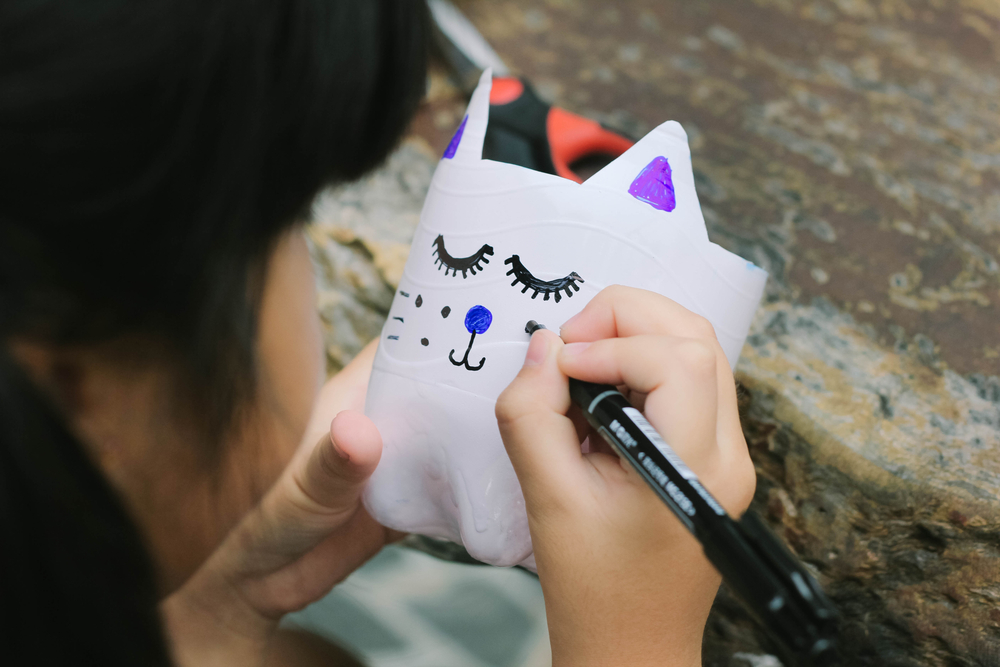Normal Seasons Worksheets for Ages 5-7
7 filtered results
-
From - To
Discover our "Normal Seasons Worksheets for Ages 5-7," designed to introduce young learners to the wonder of seasonal changes. Engaging activities help kids identify various seasons and understand weather patterns, plant cycles, and suitable clothing. With colorful illustrations and age-appropriate challenges, these worksheets make learning fun and effective. Perfect for classroom use or homeschooling, they offer a balanced mix of learning and creativity. Boost your child's science knowledge and curiosity about the world with our thoughtfully crafted seasonal worksheets. Prepare your child for a bright academic future with our comprehensive, easy-to-follow resources.
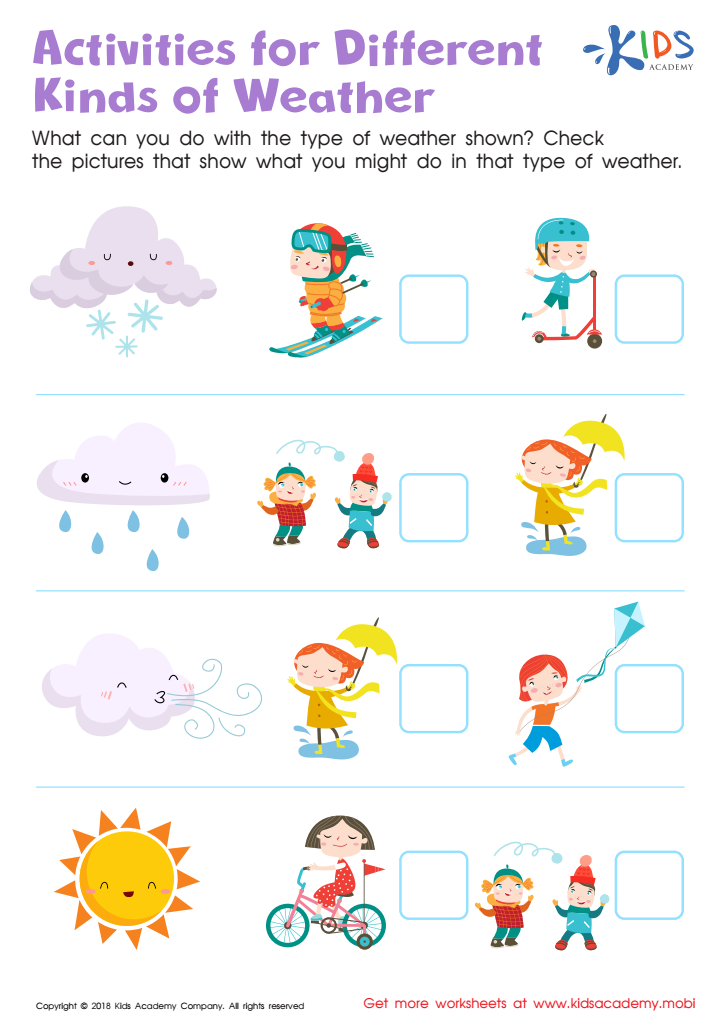

Activities for Different Kinds of Weather Worksheet
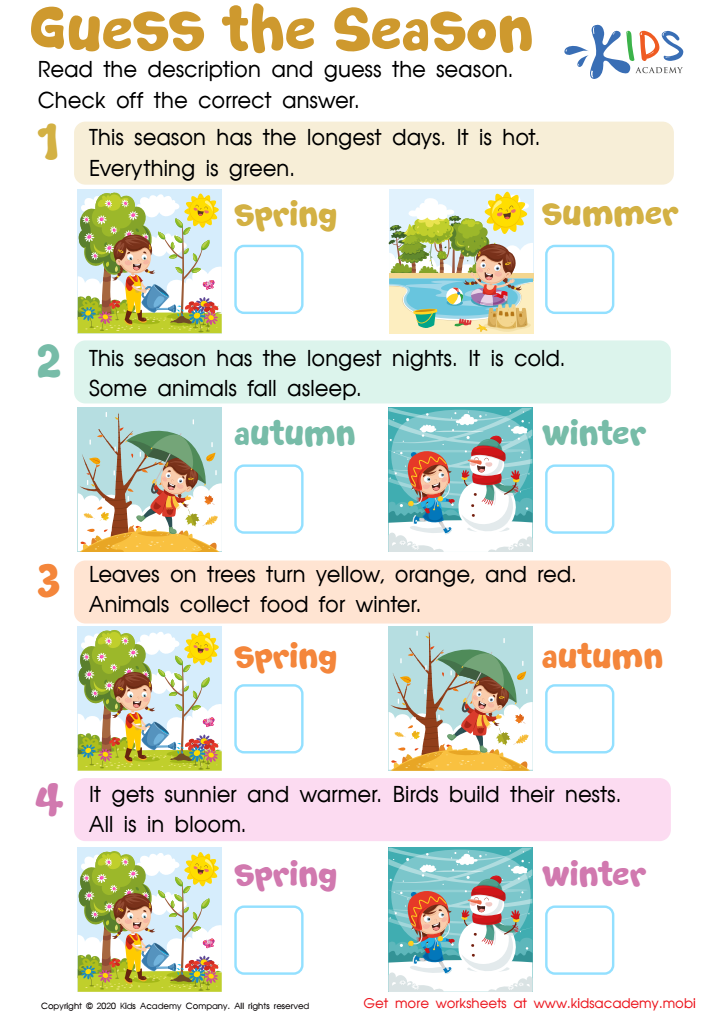

Guess the Season Worksheet
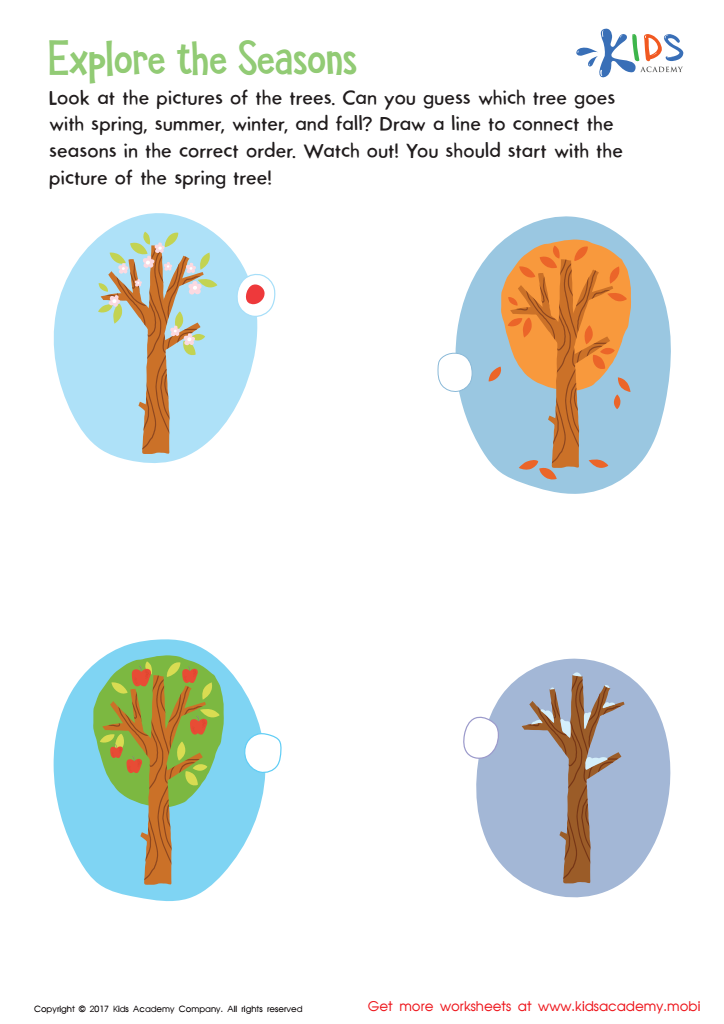

Explore the Seasons Worksheet
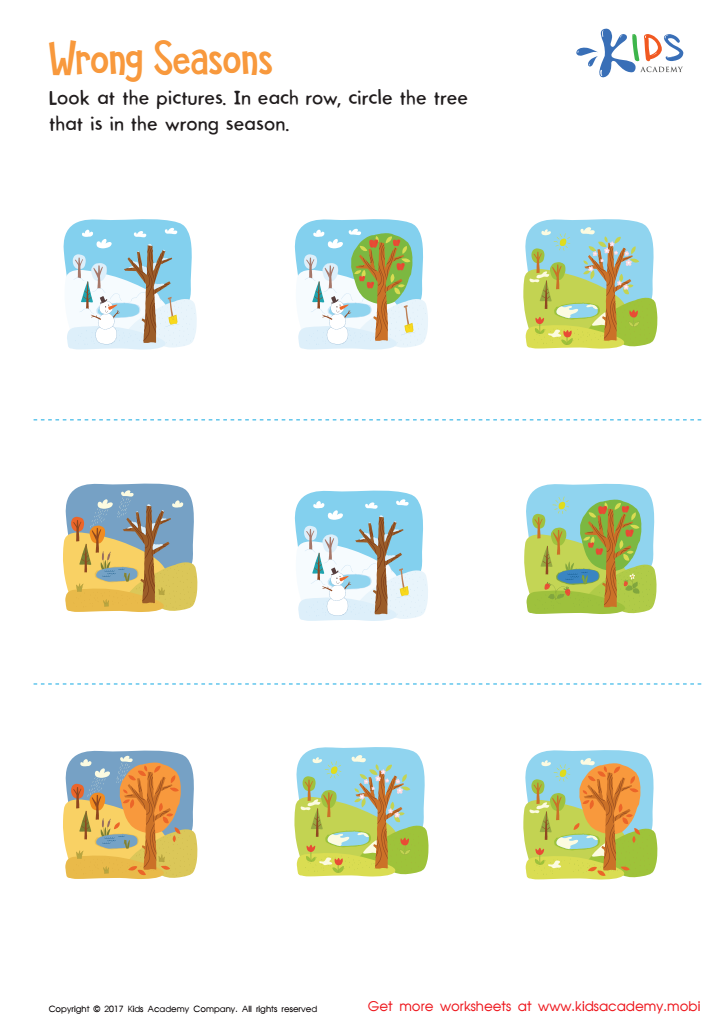

Wrong Seasons Worksheet
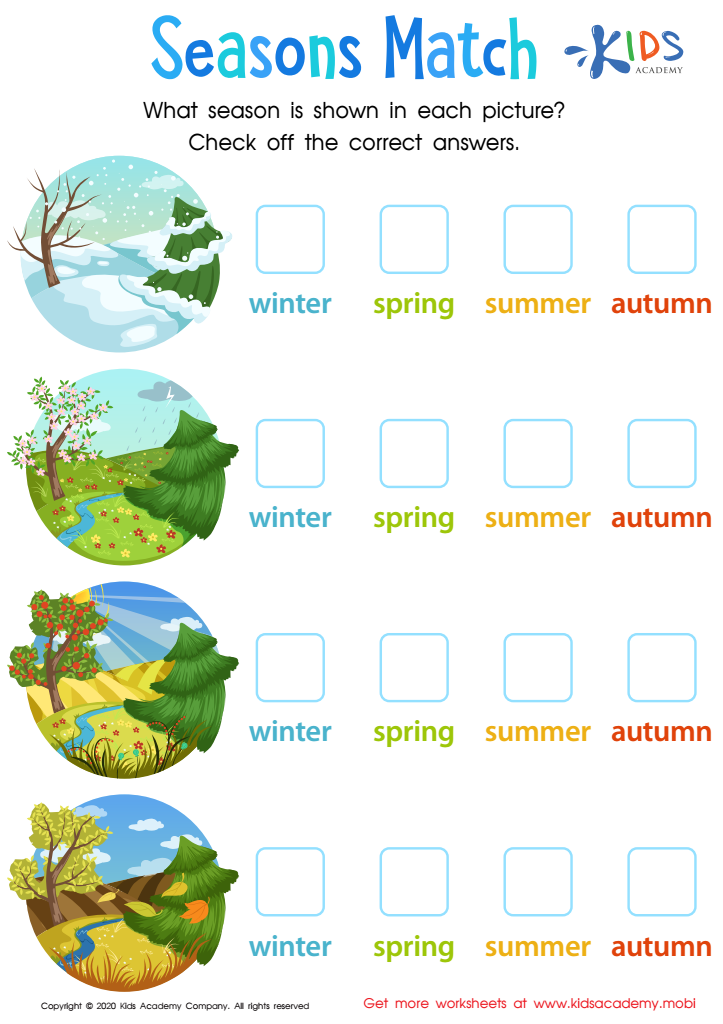

Seasons Match Worksheet
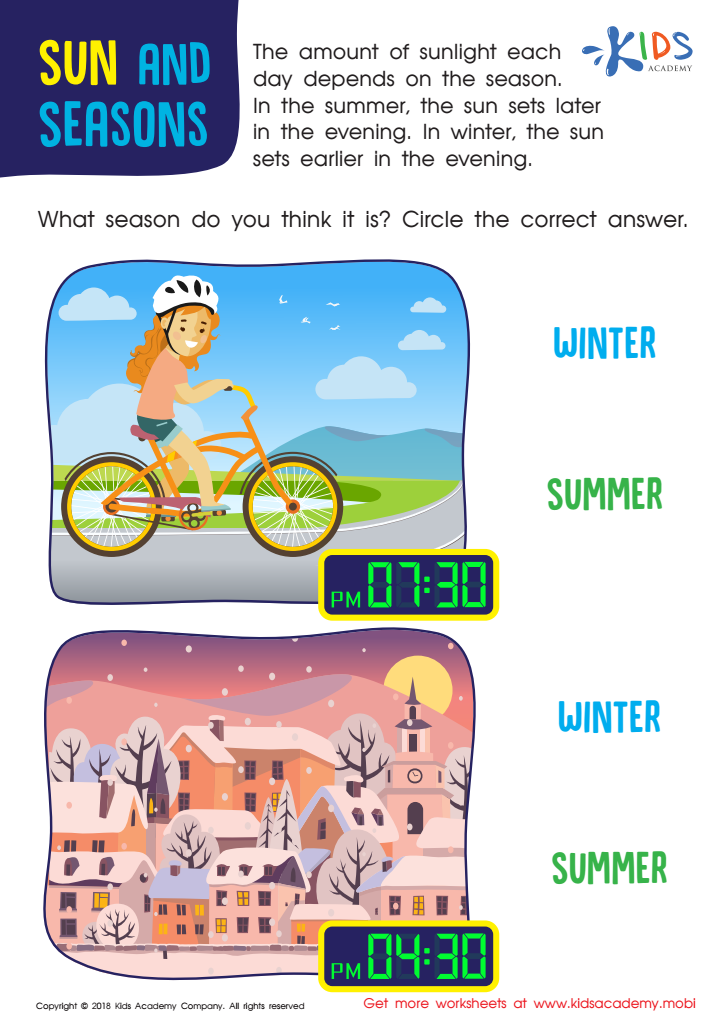

Sun and Seasons Worksheet
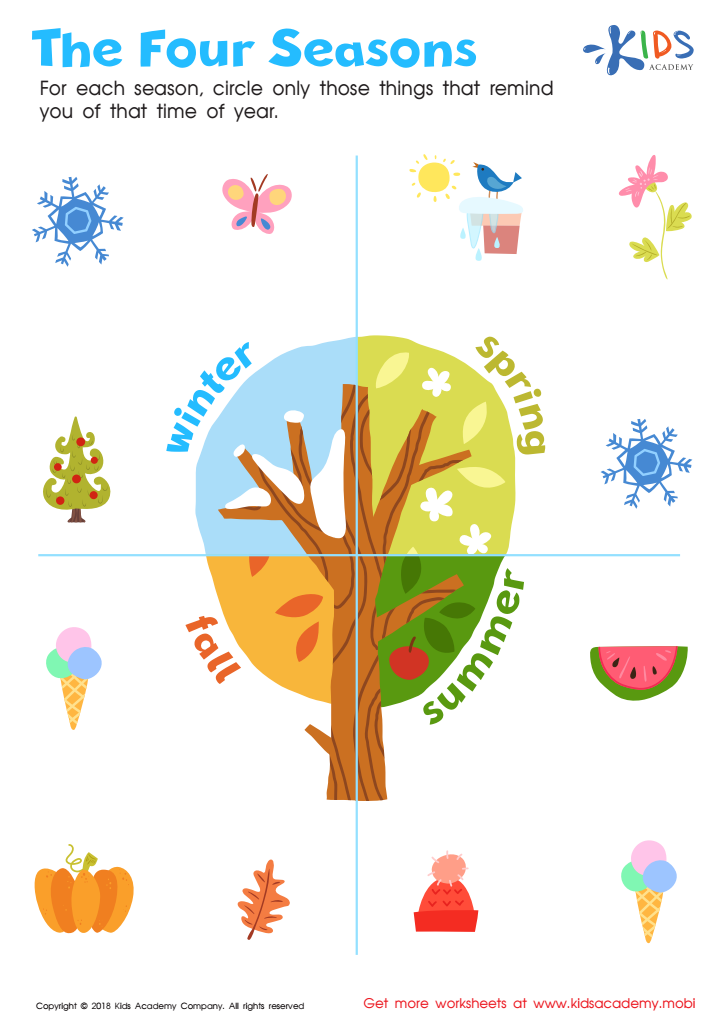

The Four Seasons Worksheet
Understanding seasons forms a fundamental part of a child’s early education and developmental growth. For children aged 5-7, learning about normal seasons is crucial as it helps them begin to make sense of the world around them. Different seasons affect what clothes they wear, the activities they do, and the foods that are available. For example, children start to identify that winter might require warmer clothing like coats and gloves, while summer might call for shorts and t-shirts.
Moreover, recognizing patterns in weather changes associated with seasons enhances their observational skills and boosts their capacity for logical thinking. Activities related to seasons can be educational; this includes arts and crafts projects emphasizing different seasonal characteristics, gardening activities that demonstrate how plants respond to weather changes, or seasonal storytelling that enriches their cognitive abilities.
Understanding seasons also cultivates a sense of time and the cyclical nature of the environment, which is an integral part of broader scientific learning. Discussing the impact of seasons can nurture an early appreciation for nature and the environment, which can foster responsible habits and attitudes towards sustainability and conservation from a young age.
By engaging with concepts of normal seasons, parents and teachers lay a foundation for further scientific inquiry and life-long learning, ensuring children grow up with an informed and curious mindset about the world around them.

 Assign to My Students
Assign to My Students





%20(1).jpg)

